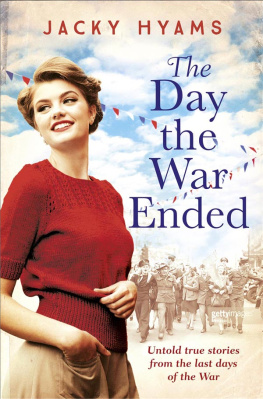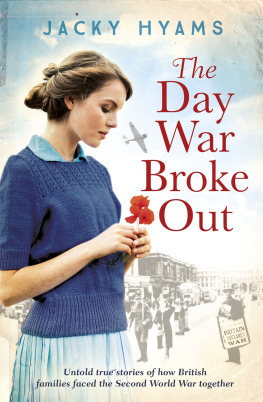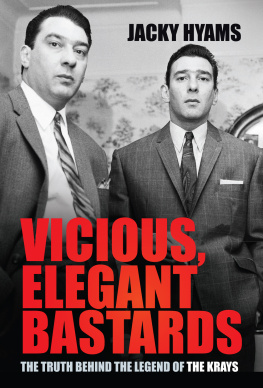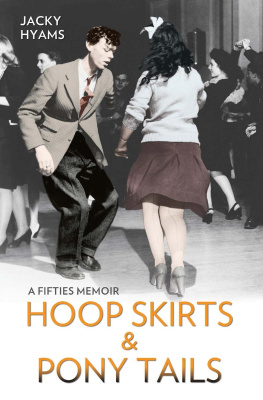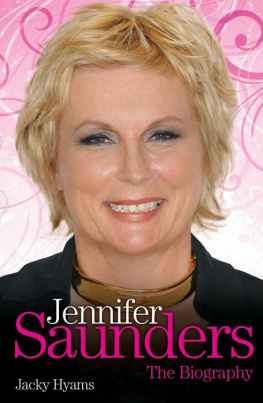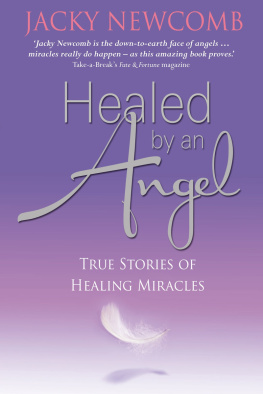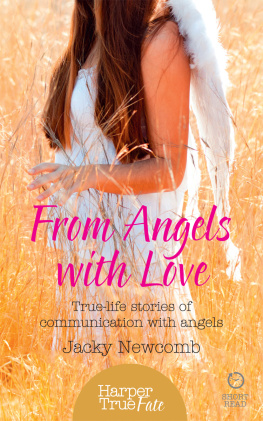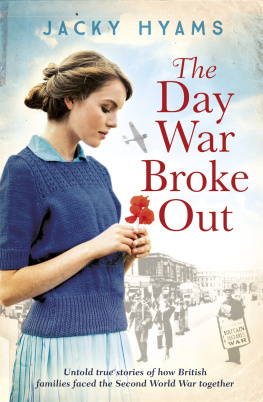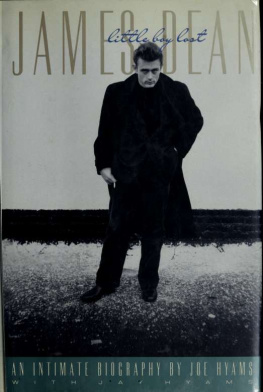Jacky Hyams - The Day the War Ended: Untold true stories from the last days of the war
Here you can read online Jacky Hyams - The Day the War Ended: Untold true stories from the last days of the war full text of the book (entire story) in english for free. Download pdf and epub, get meaning, cover and reviews about this ebook. year: 2020, publisher: John Blake, genre: Non-fiction. Description of the work, (preface) as well as reviews are available. Best literature library LitArk.com created for fans of good reading and offers a wide selection of genres:
Romance novel
Science fiction
Adventure
Detective
Science
History
Home and family
Prose
Art
Politics
Computer
Non-fiction
Religion
Business
Children
Humor
Choose a favorite category and find really read worthwhile books. Enjoy immersion in the world of imagination, feel the emotions of the characters or learn something new for yourself, make an fascinating discovery.
- Book:The Day the War Ended: Untold true stories from the last days of the war
- Author:
- Publisher:John Blake
- Genre:
- Year:2020
- Rating:3 / 5
- Favourites:Add to favourites
- Your mark:
- 60
- 1
- 2
- 3
- 4
- 5
The Day the War Ended: Untold true stories from the last days of the war: summary, description and annotation
We offer to read an annotation, description, summary or preface (depends on what the author of the book "The Day the War Ended: Untold true stories from the last days of the war" wrote himself). If you haven't found the necessary information about the book — write in the comments, we will try to find it.
The Day the War Ended: Untold true stories from the last days of the war — read online for free the complete book (whole text) full work
Below is the text of the book, divided by pages. System saving the place of the last page read, allows you to conveniently read the book "The Day the War Ended: Untold true stories from the last days of the war" online for free, without having to search again every time where you left off. Put a bookmark, and you can go to the page where you finished reading at any time.
Font size:
Interval:
Bookmark:



Published by John Blake Publishing,
an imprint of Bonnier Books UK
80-81 Wimple Street
London
W1G 9RE
www.facebook.com/johnblakebooks 
twitter.com/jblakebooks 
First published in paperback in 2020
Paperback ISBN: 9781789463392
Ebook ISBN: 9781789463507
Audiobook ISBN: 9781789463484
All rights reserved. No part of this publication may be reproduced, stored in a retrieval system, or transmitted in any form or by any means, without the prior permission in writing of the publisher, nor be otherwise circulated in any form of binding or cover other than that in which it is published and without a similar condition including this condition being imposed on the subsequent purchaser.
British Library Cataloguing-in-Publication Data:
A catalogue record for this book is available from the British Library.
Design by www.envydesign.co.uk
1 3 5 7 9 10 8 6 4 2
Text copyright Jacky Hyams 2020
The right of Jacky Hyams to be identified as the author of this work has been asserted by her in accordance with the Copyright, Designs and Patents Act 1988.
Every reasonable effort has been made to trace copyright-holders of material reproduced in this book, but if any have been inadvertently overlooked the publishers would be glad to hear from them.
John Blake Publishing is an imprint of Bonnier Books UK
www.bonnierbooks.co.uk
CONTENTS
AUTHORS NOTE
Before 1971 the pound was divided into 20 shillings (s). One shilling was made up of 12 pennies (d). A pound was made up of 240 pennies. A guinea was worth 21 shillings or 1 pound and 1 shilling (1 1s 0d).
I have given prices and sums of money in the original pre-decimal currency, which was replaced in February 1971.
In order to calculate todays value of any original price quoted, the National Archives has a very useful website with a currency converter: http://www.nationalarchives.gov.uk/currency-converter
As a general rule of thumb, 1 in 1945 was worth about 43 in todays currency.
THE DAY WAR ENDED
He was a stranger. He lived permanently on the mantelpiece. Like millions of other kids dads, in the summer of 1945 when World War II ended, my father was an absent presence in our home until the day of his return from far-off India in the summer of 1946.
Thats your daddy, children all over the country would be told, families pointing to the man in uniform, proudly staring into the camera, maybe a written scrawl on the back of the black-and-white photo carefully forwarded home with a long-awaited letter.
Perhaps, I would reflect many decades later, the reason I had been unable to bond with my dad following the separation of those early toddler years lay buried in the conflict of my subsequent unhappy relationship with him. Who could ever know for sure if the long wartime absence of fathers through World War II permanently affected their childrens subsequent relationship with them? And what of the children who never met the man in the photo because he had been killed? How would they fare beyond the familys loss?
Each family in Britain has a different story to tell about this war that had made such a huge impact on their lives. Many stories were far more dramatic or damaging than mine. Like so much about the after-effects of World War II, the emotional impact of families being torn apart or evacuated elsewhere or losing loved ones could not be explored fully until decades later.
These stories were amongst the many issues surrounding the advent of the wars end. In looking closely at the period in Britains history when World War II ended, firstly on VE Day (Victory in Europe), when the war between the Allied and Axis powers and Hitlers Germany formally ended on 8 May 1945, to be followed later that summer by VJ Day (Victory over Japan), with Japans unconditional surrender to the Allies on 15 August 1945, after the news that atomic bombs had been dropped on Hiroshima and Nagasaki (6 August), those two dates in the summer of 1945 seem the most significant guides to the era. ( Just over a year later came an official Allied Victory Parade in London on 6 June 1946, a huge military event marking the cessation of hostilities.)
But in marking how the official ending of World War II was experienced for those millions at home nine-tenths of the population of Great Britain had remained civilians when the five and a half long years of war formally ceased, was it even possible to highlight a specific or fixed point in time when wartime finally, irrevocably, ended in Britain? Or had too much changed with day-to-day lives to bring forth any easy answer?
One can, of course, acknowledge the dates in the calendar as victory and leave it at that, paying due homage to those who perished. According to the Royal British Legion, World War II killed 382,700 members of the British Armed Forces and 67,100 civilians. As tragic as each death impacts on every home, this figure seems relatively low when balanced against World War IIs impact on the tens of millions who perished from other countries around the world. Such histories, of course, did not emerge immediately. They would be gradually revealed to the world in the months and years that followed that iconic official VE Day. The complexities of war ending in Britain were very far from simple: a small country with a vast empire sprawled across the globe, an island separated from the rest of Europe by water, unconquered by an evil force, yet torn apart both economically and in bricks and rubble, all this in addition to the long-lasting emotional strife of those at home living right through the war with their the stories of hardship, family separation, injury and, in some cases, devastation.
Then there is the ironic case of Britains leadership through the tough times until the final ending. Youd expect such an individual to emerge as a feted colossus hailed by the people when the hostilities stopped. Not quite.
Even now Winston Churchill remains a legendary icon (if controversial to some). Back in 1945, he had been viewed as a political giant, a tubby man of privilege with a cigar and a V-sign who had steered the nation through the most fearsome days and nights with memorable rhetoric.
You do your worst and we will do our best, he wrote in July 1941 following one of many visits to bomb-damaged cities like Plymouth where the sight of the streets, ragged from destruction, brought tears to his eyes.
Yet Winston Churchill and his Conservative Party were soundly rejected by the British people when nearly 25 million war-weary voters turned up at the ballot box in the July 1945 election that tumultuous summer to vote in favour of the Labour Party. It was headed by the man who had been Churchills deputy prime minister from 1942 onwards, Clement Attlee.
That sudden dismissal of Churchill, unexpected as it was at the time, revealed the depth of the struggle endured by the millions who had lived through wartime.
Theyd come through, got on with it stoically somehow. Yet many hungered for change, aware that the years ahead for the victorious country meant facing up to huge problems. Millions had urgent need of housing thanks to the overall requirement to rebuild the damaged country. On the economic scale, the country was broken, in huge debt to its major ally, the United States. Even many of Britains Armed Forces, fearful of the years of disillusion and unemployment that had followed the First World War, voted for a new Labour government and the impact of serious political change. Normal party politics had been suspended from May 1940 to May 1945 in the interest of national unity when the three main political parties had formed a wartime coalition.
Next pageFont size:
Interval:
Bookmark:
Similar books «The Day the War Ended: Untold true stories from the last days of the war»
Look at similar books to The Day the War Ended: Untold true stories from the last days of the war. We have selected literature similar in name and meaning in the hope of providing readers with more options to find new, interesting, not yet read works.
Discussion, reviews of the book The Day the War Ended: Untold true stories from the last days of the war and just readers' own opinions. Leave your comments, write what you think about the work, its meaning or the main characters. Specify what exactly you liked and what you didn't like, and why you think so.

